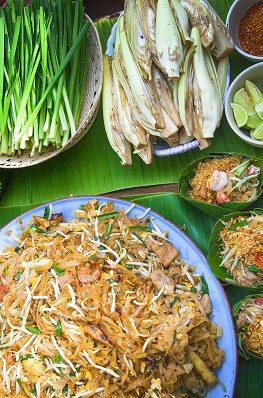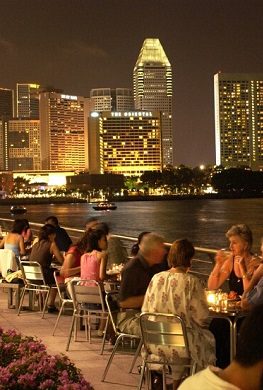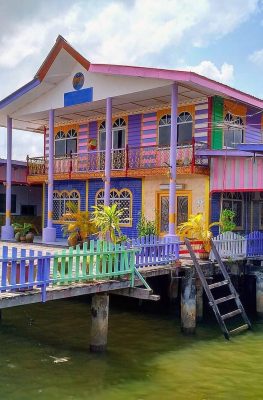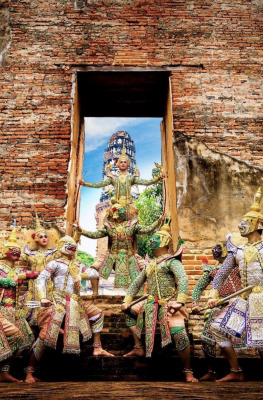Published on August 25, 2017

Elephants at Mondulkiri, Cambodia. Tom Curt/Creative Commons
Staying true to one’s principles is difficult enough to do at home – imagine how that level of difficulty scales when you’re traveling. As a travel blogger and a vegetarian, Archana Singh (blogging at Travel See Write) walks this thin line on a regular basis.
So far, so good: “I have always been an animal lover and have never ridden any animal in my life, except for a one-time horse-back ride in the Sonoran Desert, Arizona,” Archana tells us. “I was recently in Chitwan National Park, Nepal where the hosts had organised an Elephant Safari. I refused to ride an Elephant and instead took the Jeep safari.”
Thanks to her recent experience volunteering at Cambodia’s Elephant Valley Project, Archana knows she’s on the right track as far as her principles are concerned. The Project is a 1,600-hectare sanctuary in Mondulkiri that takes care of the area’s overworked elephants.
“It was a chance meeting with an Austrian couple last year in Battambang, Cambodia, where they shared their experience of visiting abused Elephants rehabilitation centre,” Archana recalls. “I was so moved by their story I packed my bags the next day and landed in Sen Monorom.”
As a volunteer at the Elephant Valley Project, Archana came face to face with the brutal lives of these beasts of burden. “I learnt how cruel we become with animals in our greed,” Archana tells us. “We use all kinds of torture methods to break them. Our greed makes us forget the very essence of being a human – empathy.”
Mondulkiri’s elephants are traditionally used in the forestry industry, carrying heavy loads like logs down from the logging sites. It’s a hard life, Archana says. “We abuse the poor animals so much that they forget what it is to be free and happy,” she tells us. “They are scarred for life. Even when they are rescued, they don’t feel safe and are always living under constant fear.”

Silver artisans in Thailand. Image courtesy of the Tourism Authority of Thailand.
As you travel throughout Southeast Asia, make a commitment now to following ethical travel principles – you don’t have to go all-out, just follow a few basic principles:
Consume ethically. Ensure your travel dollar goes to the grassroots, prioritizing small community businesses over large corporations run from elsewhere. That means avoiding chain hotels whenever possible, and sleeping at family-owned B&Bs. Or eating at smaller street-food-style stalls instead of large restaurants.
This also goes for shopping: buy locally, ideally straight from local artisans, or shops with a reputation for making ethical choices. Archana follows this principle: “I buy products from fair trade outlets only,” she tells us. “[I also] use local guides and stay at homestays.”
No animals were hurt and killed… this line from movies’ end credits should equally apply to your trip, though your mileage may vary.
Not everyone draws the same line in the sand where animals are concerned. Some tourist attractions use animals as beasts of burden (for example, horse rides in Indonesia’s Bromo crater), or feature captive/native animals as their main attraction (for example, the whale sharks of Oslob in the Philippines), without inflicting excessive cruelty on the animals involved.
It’s up to you to decide whether patronizing these attractions violates your principles. As a vegetarian, this is Archana’s line, full stop. “I don’t consume meat or animal products,” she tells us.
Ease your burden on the environment. While you’ll inevitably consume resources and generate trash as you go on your trip, it’s on you to ensure that your impact on the local environment be kept to a minimum. It’s a responsibility Archana keeps in mind on the road.
“[I] try to reduce my carbon footprint by walking instead of taking motorised vehicles for short distances or use public transport for long journeys,” she recalls. “[I also] use water sparingly and carry my water bottle to reduce plastic use and carry my trash with me.”
- Read about eco-tourism in Southeast Asia
For more on Archana’s adventures throughout the world, visit her website, or follow her on social media.






